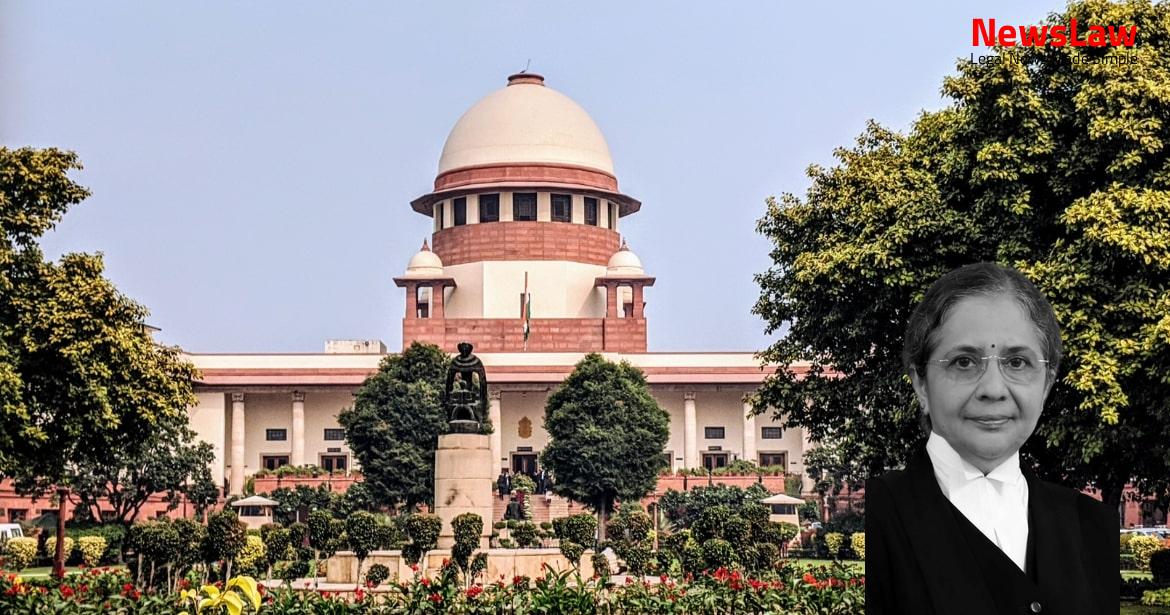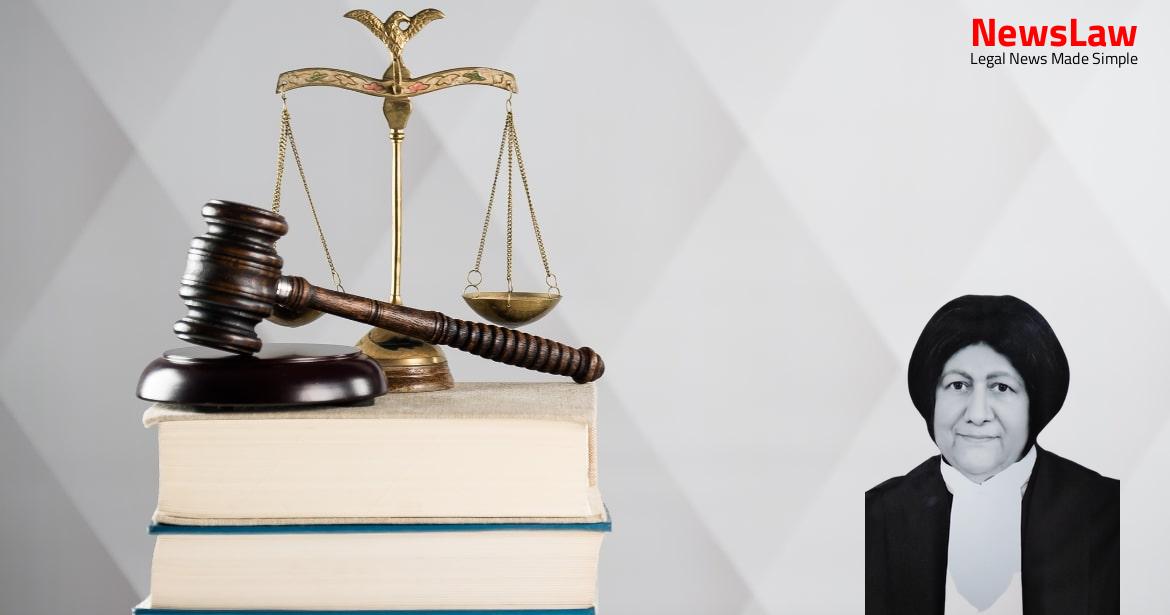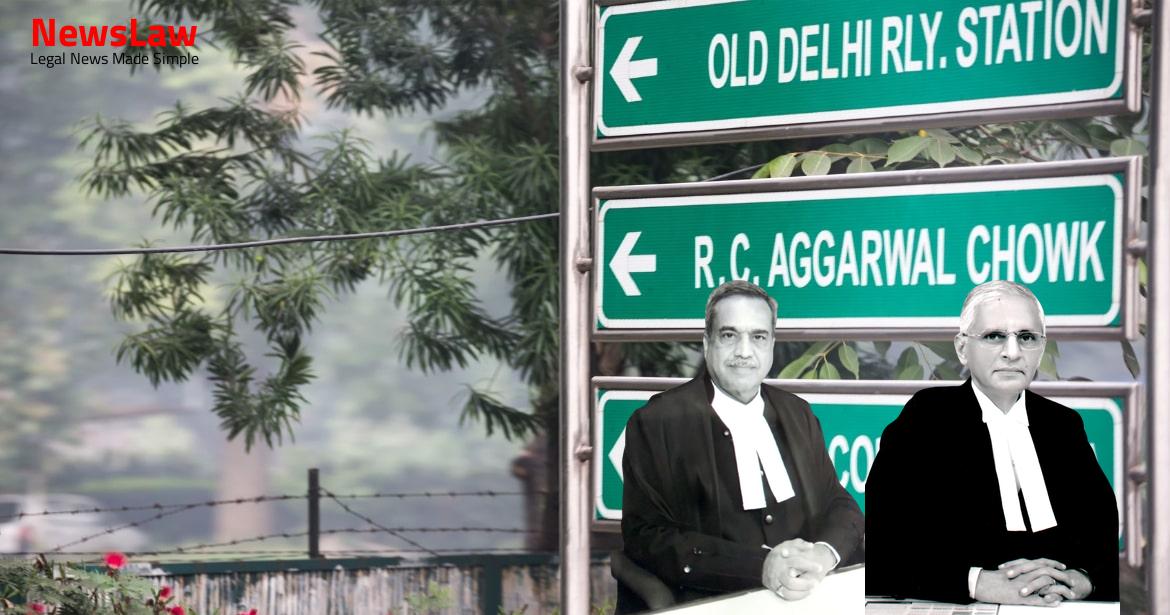In a recent ruling by the Supreme Court of India, the case of BCCL vs. Banshidhar Construction Private Limited has garnered attention due to the dispute over the rejection of a technical bid. The court’s decision delves into the intricacies of the bidding process and the criteria for qualification. Follow this summary to gain insight into the legal battle between BCCL and Banshidhar Construction Private Limited.
Facts
- The Appellant’s technical bid was rejected by the Technical Bid Committee of BCCL.
- The High Court of Jharkhand dismissed the writ petition filed by Banshidhar Construction Private Limited.
- The High Court upheld the decision of the Technical Bid Committee to reject the Appellant’s bid.
- The Writ Petition filed by Lalti Devi Coal Co. challenging the decision of Bharat Coking Coal Limited (BCCL) regarding the disqualification in the tender process was dismissed by the High Court.
- Lalti Devi Coal Co. participated in the tender for the coal excavation project but was declared technically disqualified due to non-compliance with the bid signing Power of Attorney requirement.
- The bid submitted by Lalti Devi Coal Co. was rejected based on non-compliance with Clause 10 of the Tender document.
- BCCL awarded the project to another bidder, Company 8, after disqualifying Lalti Devi Coal Co. technically.
- The High Court upheld the decision of BCCL and dismissed the Writ Petition filed by Lalti Devi Coal Co. questioning the tender disqualification.
- The Court proceedings indicate that Lalti Devi Coal Co. was unsuccessful in challenging the tender evaluation outcome.
Also Read: Supreme Court Ruling: Judicial Review of Selection Process Rules
Issue
- Whether BCCL was justified in rejecting the Technical bid of the Appellant while accepting the bid of Respondent no. 8.
- Did Respondent no. 8 fail to comply with the mandatory requirement of submitting important documents related to qualification criteria as per Clause 10 of the NIT?
- Did Respondent no. 8 consequently fail to qualify the Eligibility criteria laid down in the NIT?
Also Read: Justice Prevails: The Case of Bhagwan Singh vs. Sukh Pal Singh
Arguments
- The Appellant’s Technical bid was rejected by the Tender Evaluation Committee of the BCCL.
- The reason for rejection was that the bid documents were signed on 13.11.2023 while the Power of Attorney was notarized on 14.11.2023.
- The Appellant argued that the rejection was arbitrary and discriminatory as the bid of Respondent No. 8 was accepted despite missing important documents, and was allowed to submit them later.
- The Appellant claimed they complied with all NIT conditions and their bid was more competitive (Rs. 700 crores approx.), causing a loss to the public by awarding the tender to an ineligible party.
- The Respondents justified the rejection based on the discrepancy in dates of bid document execution and Power of Attorney, stating the Executant lacked authority at the time of signing.
- The Respondents emphasized that meeting the eligibility criteria under the NIT was crucial, and although the bid documents were filed within the stipulated time, the Appellant failed to meet this criteria.
- The decision-making process of government entities, according to the Appellant, should be reasonable and without arbitrariness, citing various court decisions in support.
- The Respondent 8 was declared as successful bidder on 10.06.2024.
- Respondent 8 entered into a Coal Mining Agreement on 27.06.2024.
- The Tender Committee sought clarification from Respondent 8 on 09.04.2024, which was consistent with other bidders.
- No pleading of malafide was raised by the Appellant in the Appeal.
- The courts should not scrutinize small mistakes in decision-making processes as big blunders.
- The scope of judicial review in contract awards is limited, especially for infrastructure projects of national importance.
Also Read: Landmark Judgement in the Case of Money Laundering Offenses
Analysis
- The Bidder must submit documents reflecting the Net Worth of the Associate(s) relied upon.
- Integrity pact must be signed and witnessed as per provided proforma.
- In case of a Consortium, all members must sign the integrity pact.
- Bidders in jurisdictions without statutory auditors may submit certificates from the firm of auditors.
- Technical bid rejection without valid justification is arbitrary and illegal.
- Requirement for specific documents in relation to financial capacity and technical criteria.
- Non-compliance with bidding instructions may lead to bid rejection.
- Legal and justifiable reasons must be provided for bid rejections.
- Court does not act as a Court of Appeal in contract award matters.
- Furnishing of documents and certificates related to financial capacity and qualification criteria is mandatory.
- Substantiation of financial capacity through specified documents and certificates.
- Requirement for a conforming Apostille certificate for Power of Attorney from countries under Hague Convention.
- Submission of scanned copies of important documents as required in the NIT.
- Documents uploaded to support declarations made by the Bidder online.
- Transparent and unbiased bidding process is essential in public contracts.
- All bidders must adhere to the essential terms of the bidding process.
- Submission of scanned copies of audited annual reports is a mandatory requirement.
- Concern regarding acceptance of bids in non-compliance with NIT requirements.
- Documents from Consortium members for financial capacity assessment.
- Government bodies must ensure fairness, equality, and public interest in contractual matters.
- Notarisation and submission of Power of Attorney as per format provided in the NIT.
- Bidders must confirm the authenticity of information and documents submitted.
- Bidder must choose financial years for submission of financial capacity information.
- Expectation of upholding equality and fairness in government contracts.
- Documentation and authorisation requirements for Digital Signature Certificate holders.
- Undertaking to confirm genuineness of submitted information and documents.
- The terms of the invitation to tender cannot be open to judicial scrutiny as it falls within the realm of contract.
- Questions about the soundness of the decision may arise if it is found to be irrational, mala fide, or intended to favor someone.
- The decision-making process can be subject to judicial review to ensure transparency and fairness.
- Transparent bidding processes are favored to ensure constitutional requirements are met, especially under Article 14 of the Constitution of India.
- The State is required to act in a fair and reasonable manner unless public interest dictates otherwise.
- The degree of compromise of any private legitimate interest must correspond proportionately to the public interest.
- Judicial review aims to ensure fair treatment for individuals, not to substitute the decision-making authority’s conclusions.
- Courts have inherent limitations on the scope of inquiry into the details of contracts entered into by public bodies or the State.
Decision
- The impugned decision of BCCL rejecting the Technical bid of the Appellant is set aside.
- BCCL’s declaration of another party as the successful bidder is also set aside.
- BCCL is permitted to initiate a fresh tender process for the Project.
- Any actions or agreements made based on the previous decision are deemed set aside.
Case Title: BANSHIDHAR CONSTRUCTION PVT. LTD Vs. BHARAT COKING COAL LIMITED (2024 INSC 757)
Case Number: C.A. No.-011005-011005 – 2024



